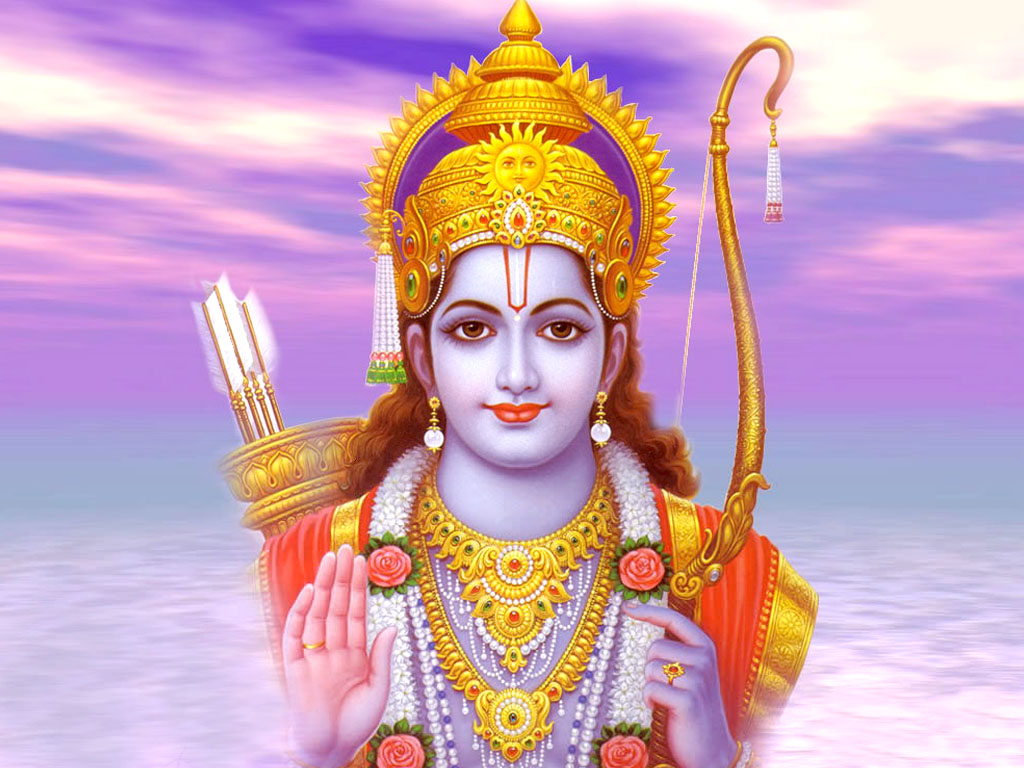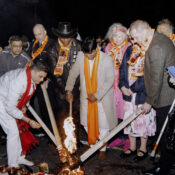
Why Lord Ram Is Known as “Maryada Purushottam”
The name “Ram” is still echoing in Hindu households everywhere. From the well-known television serial “Ramayan” to various bedtime stories, this name keeps inspiring us in some way.
He is believed to be Lord Vishnu’s seventh avatar. He is a strong sign of responsibility and goodness. Throughout his life, he walks on a path that is so difficult to traverse but he always sticks to his values and morals.
People also refer to him as Maryada Purushottama, Raghava, and Ramachandra. And there is some reason or story behind all these names. So today, let us know why Lord Ram is known by the name of “Maryada Purushottam” (मर्यादा पुरुषोत्तम).
First, let’s understand the meaning of Maryada Purushottam.
The phrase “Maryada Purushottam” originated in Sanskrit and consists of two words: “Maryada” (which suggests honor and righteousness) and “Purushottam” (which refers to the highest of men). Together, they refer to the “perfect man who is supreme in honor” or also called the “ideal man”.
Key Events That Established Lord Ram’s Title as Maryada Purushottam
The Prince Who Chose Exile
Ram was born into the royal palace of Ayodhya to Emperor Dasharatha and principal Queen Kaushalya. Being the eldest son, he received a lot of love and people wanted to see him become the king soon. But destiny had some other plan.
One of the queens of Dasharatha named Kaikeyi demanded Ram’s exile and asked Dasharatha to hand over the kingdom to her son Bharat. Here, Ram had full right to protest against his father’s decision but he didn’t do so. Without questioning or arguing, he smiled gently and said that if this is my father’s wish then it is my duty to fulfill it. He left all the luxuries behind and went into the forest barefoot for 14 years.
He did this because he valued “Maryada” and respected his parents.
The Husband Who Understood Love
During the exile, when Lord Ram’s wife Sita decided to go to the forest with him, Ram respected her decision without bringing any fear or ego into the picture. In the forest, he lived a simple life like a normal couple and always tried to protect his wife.
But even in that, the darkest day came when Ram went for a hunt to fulfill Sita’s wish of getting the golden deer. At that time Sita was abducted by Ravan. But Ram didn’t lose his emotional balance and set out on a mission to find Sita.
Here, as an ideal man, he made us believe in staying calm in crisis and fighting with purpose instead of just fighting with power.
The Warrior Who Fought with Ethics
The fight between Ram and Ravana was sure to happen. Because Lanka’s king Ravana had committed a sin, Ram needed to bring justice to him. At the time of war, Ram exercised self-control and gave Ravann many chances to return Sita so that the war didn’t happen.
During the war, when Ravana’s brother Vibhishan came for refuge, Ram gave him shelter even though he was from an enemy family. He treated every opponent with dignity. Even after shooting an arrow at Ravana, he instructed his brother Laxman to go to Ravana and learn whatever wisdom he could. Because he considered him a great scholar.
Here the reason for his being of dignity is that he fought despite the hatred and did not show arrogance even after victory.
The King Who Prioritized Dharma Over Individual Preferences
After the fight, Ram gained Sita back and they came back to Ayodhya. People welcomed them with pure love, and Ram became the king. But after that, whispers started in the people raising questions about Sita’s purity.
Ram had trust in Sita, but as a king, it was important for him to maintain the trust of their people. With heartache, he asked Sita to give Agni-Pariksha to demonstrate her purity. This thing did not end there and the rumor continues to spread. So, with a heavy heart, Ram had to send a pregnant Sita to the forest to just show that the king must be beyond personal emotions. This was not easy but he did it for dharma.
That’s why he is Maryada Purushottam, a man who stood by his duty in every type of situation.
Conclusion
Ram just didn’t live a normal life, but he carved a path. That’s why today we are remembering him not just as a fighter or supreme ruler but as a “Maryada Purushottam”. The one ideal man who didn’t live for power or praise but also for principle. His entire life is characterized by quiet strength and amazing values. And in moments of peace of sacrifice and duty, he became timeless.



